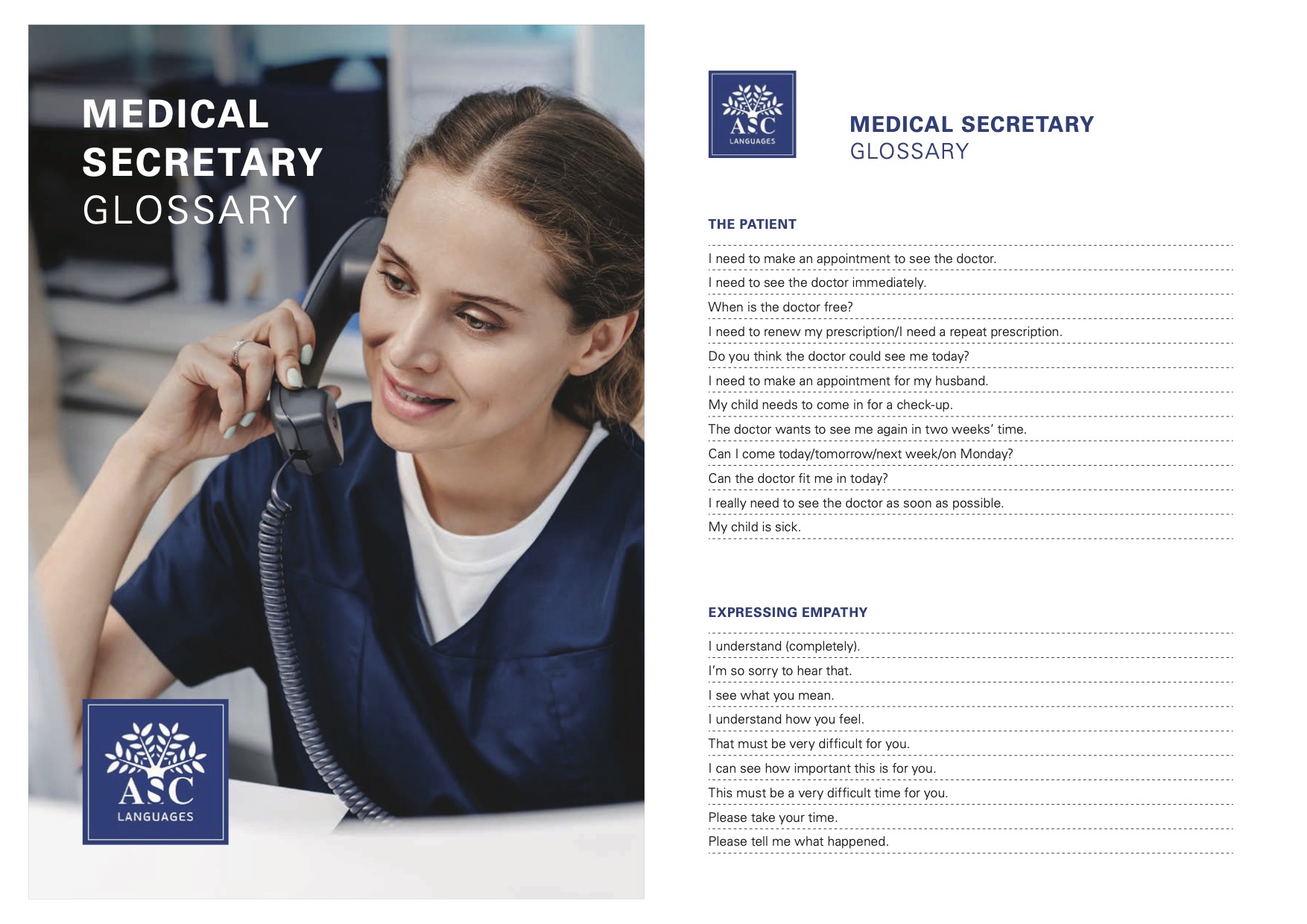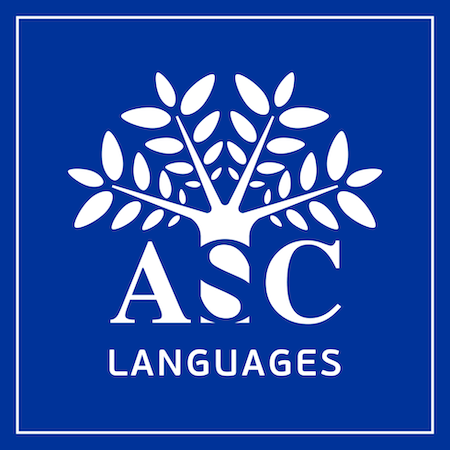English for medical secretaries/assistants
Format: face-to-face, 2 hours a week
Levels: A1 A2 B1
A professional English course for medical secretaries and assistants
This course has been specially designed and tested by a former British and Swiss nurse for healthcare professionals who need to improve their professional English.
The lessons focus on communicating fluently and effectively in English with patients and their families, using a wide range of medical terminology and expressions.
Our communicative and interactive approach enables learners to manage and master face-to-face, telephone and e-mail interactions in the context of their work.
Training content: Professional English for medical secretaries/assistants
Thanks to this training course, you will be able to develop your interpersonal skills and acquire additional language skills to:
- Feel more at ease in your day-to-day communications at work, by e-mail, telephone and face-to-face
- Provide patient-specific information
- Manage medical appointments
- Ask questions to gather important information
- Put the patient at ease
- Express empathy, reassurance and encouragement
- Explain a prescription and the side effects of medicines
- Talk clearly about symptoms, illnesses, medical examinations and pain
- Personalise your monitoring of mothers-to-be, children, the elderly and people in psychological distress
- Respond effectively to patients' concerns and anxieties
- Remain calm in unexpected situations
The four stages of our training course
Assessment and interview
Your journey begins with an online assessment test followed by a personal interview. This first stage enables us to analyse your specific needs in detail. This interview is free of charge and does not commit you to anything. It is designed to allow us to understand your objectives and tailor your training to meet your professional expectations.
Setting up the programme
Once we have identified your needs, we will give you a detailed syllabus for the course. You will also have access to a variety of additional learning tools. These resources are selected to complement and enrich your learning experience, enabling you to progress independently and effectively.
Support
Throughout the course, you will receive ongoing support from a dedicated tutor. Your teacher will support your progress, provide regular assessments and prepare you for the final test. This regular support is essential to ensure that you stay on track and achieve your learning objectives.
Certification
At the end of the course, you will recieve a certificate. This document will provide information about the language skills you have acquired. The certificate is an acknowledgement of your new English skills, proving your ability to use them in a professional medical context.

Developing communicative skills in English
Our teaching approach is strongly focused on interactive communication, ensuring that participants can put what they learn into practice in real-life scenarios:
- Face-to-face interaction: Secretaries and medical assistants practise conducting direct conversations with patients, improving their ability to communicate complex information in an understandable way.
- Telephone and e-mail communication: The course covers specific techniques for remote communication, a crucial aspect of administrative medical work. Students learn how to handle professional telephone calls and write clear, precise e-mails.
Strategies for continuous improvement
To make progress in English, participants need to adopt a proactive and regular approach:
- Continuous practice: Regular immersion in the language through dialogues with native speakers or simulated medical scenarios helps to build fluency and confidence.
- Constructive feedback: Receiving regular feedback from instructors helps students understand their strengths and identify areas for improvement in their communication.
- Specific learning objectives: Setting clear and measurable objectives for learning medical English is essential. Regularly assessing progress and adjusting learning methods accordingly helps to maintain motivation and commitment.
from 529.-
Course information:
- Day: Tuesday
- Next course: contact us
- Times: from 6:00 to 8:00 pm
- Number of students per class: maximum 8
Key features:
- Programme designed and tested by an experienced UK/Swiss nurse
- Tailor-made glossary
- Small groups (average: 5 students per class)
- Free access to an e-learning platform
- Training provided by a certified teacher
- Personalised monitoring of your progress
- End-of-course certificate showing skills acquired
Prices:
- Price: 579.-
- Special rate: 529.- (under 25s, seniors, students, unemployed)
- Registration fee and materials: 100.-
from 529.-
Course information:
- Day: Tuesday
- Next course: contact us
- Times: from 6:00 to 8:00 pm
- Number of students per class: maximum 8
Key features:
- Programme designed and tested by an experienced UK/Swiss nurse
- Tailor-made glossary
- Small groups (average: 5 students per class)
- Free access to an e-learning platform
- Training provided by a certified teacher
- Personalised monitoring of your progress
- End-of-course certificate showing skills acquired
Prices:
- Price: 579.-
- Special rate: 529.- (under 25s, seniors, students, unemployed)
- Registration fee and materials: 100.-
